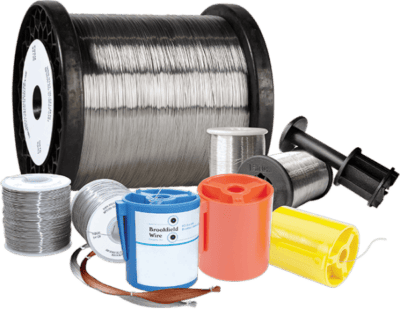In the field of modern healthcare, medical wire plays a vital role in various applications, from surgical procedures to diagnostic tools. Top medical wire manufacturers are the unsung heroes responsible for creating these intricate components essential for medical advancements. This article explores the world of medical wire manufacturing, covering the evolution of this technology, the materials used, safety standards, and the future of this dynamic industry.
Evolution of Medical Wires in Modern Healthcare
Medical wires suppliers have progressed significantly from their early forms to the sophisticated components used today. Initially employed for simple tasks like sutures and basic instruments, medical wires now serve a wide range of purposes, including stents, catheters, and neurostimulation devices. This evolution is driven by advancements in materials science, manufacturing techniques, and the growing demand for minimally invasive medical procedures.
Crafting Quality: Inside the World of Medical Wire Manufacturing
Producing high-quality medical wires requires precision engineering and expertise in materials selection. Medical wire manufacturers use specialized equipment and processes to create wires with exceptional mechanical properties, biocompatibility, and performance characteristics. From stainless steel to nitinol and polymer-coated wires, each material offers distinct advantages for specific medical applications.
The Art of Wire Drawing
A fundamental process in medical wire manufacturing is wire drawing, where a metal rod is pulled through a series of dies to reduce its diameter and enhance its mechanical properties. This process demands precise control of parameters like temperature, drawing speed, and die geometry to achieve the desired wire characteristics.
Precision Cutting and Coating
Following wire drawing, precision cutting and coating processes are employed to achieve the final dimensions and surface properties needed for the intended application. Coatings such as PTFE, silicone, and hydrophilic polymers are applied to improve lubricity, biocompatibility, and electrical conductivity.
Innovations Driving Medical Wire Technology Today
Medical wire technology is continually evolving, fueled by innovations that aim to enhance patient outcomes, device performance, and enable new medical procedures. Miniaturization, additive manufacturing, and advanced surface treatments are key trends shaping the future of medical wires.
Miniaturization for Minimally Invasive Procedures
Advances in microfabrication techniques have enabled the development of ultrafine wires for use in minimally invasive procedures like endoscopy, neurosurgery, and cardiovascular interventions. These miniature wires offer improved flexibility and maneuverability, allowing physicians to navigate complex anatomical structures with precision.
Additive Manufacturing for Customization
Additive manufacturing, or 3D printing, has transformed the production of complex medical devices, including patient-specific implants and intricate wire components. This technology enables rapid prototyping, customization, and the creation of intricate geometries previously unattainable with traditional methods.

A Closer Look at the Role of Medical Wire Manufacturers in Health
Medical wire manufacturers play a crucial role in advancing healthcare by supplying essential components that facilitate life-saving interventions, diagnostic procedures, and therapeutic treatments. These manufacturers collaborate closely with healthcare professionals, research institutions, and regulatory bodies to ensure the safety, efficacy, and quality of medical wires.
Materials Used by Top Medical Wire Manufacturers
The selection of materials is critical in medical wire manufacturing, as each material offers unique properties tailored to specific medical applications. Stainless steel, nitinol, platinum, and various polymers are commonly used materials in medical wire production, chosen for their mechanical strength, corrosion resistance, biocompatibility, and radiopacity.
Stainless Steel Wires
| Material | Properties | Common Applications |
| Stainless Steel | High mechanical properties, durability, cost-effective | Guidewires, catheters, surgical instruments |
| Nitinol Alloys | Superelasticity, shape memory, high biocompatibility | Stents, orthodontic wires, vascular closure devices |
| Platinum | Excellent biocompatibility, corrosion resistance, radiopacity | Cardiac catheters, neurostimulation electrodes |
| Polymer Coatings | Lubricity, biocompatibility, electrical conductivity | Coated guidewires, neurovascular catheters |
Reasoning: This table provides a concise overview of the materials commonly used by top medical wire manufacturers, outlining their properties and typical applications in the healthcare industry. Stainless steel, nitinol alloys, platinum, and polymer coatings are essential materials that offer unique characteristics suited for various medical wire components.
Standards in Medical Wire Production
| Standard | Description | Compliance Requirements |
| ISO 13485 Certification | Quality management system for medical device manufacturing | Design, production, testing adherence to standards |
| FDA Regulations | Oversight of medical devices in the U.S. to ensure safety and efficacy | Compliance with Quality System Regulation |
Stainless steel wires are widely used in medical devices due to their excellent mechanical properties, durability, and cost-effectiveness. These wires are commonly found in applications such as guidewires, catheters, and surgical instruments where high tensile strength and flexibility are essential.
Nitinol Alloys
Nitinol, a shape memory alloy made of nickel and titanium, is known for its unique properties, including superelasticity and shape memory. Nitinol wires are utilized in medical devices like stents, orthodontic wires, and vascular closure devices due to their ability to undergo significant deformation and return to their original shape.
Ensuring Safety and Precision: Standards in Medical Wire Production
Quality standards are vital in the manufacturing of medical wires to ensure safety, performance, and regulatory compliance of these critical components. Medical wire manufacturers adhere to stringent quality management systems, such as ISO 13485 and FDA regulations, to maintain the highest standards in design, production, and testing.
ISO 13485 Certification
ISO 13485 is an international standard that outlines requirements for a quality management system in the design and manufacturing of medical devices. Medical wire manufacturers certified to ISO 13485 demonstrate their dedication to producing safe and effective products that meet regulatory requirements and customer expectations.
FDA Regulations
In the United States, the Food and Drug Administration (FDA) oversees medical devices, including medical wires, to ensure their safety and efficacy for patient use. Manufacturers must comply with FDA regulations, such as the Quality System Regulation (21 CFR Part 820), to market their products in the U.S. and uphold patient safety.
Behind the Scenes: How Top Manufacturers Engineer Medical Wires
The engineering process of medical wire manufacturing involves a series of intricate steps requiring expertise in materials science, design, and manufacturing techniques. Top manufacturers employ skilled engineers, metallurgists, and quality control specialists to develop innovative wire solutions that meet the demanding requirements of the healthcare industry.
Research and Development
Research and development (R&D) drive innovation in medical wire technology, leading to the discovery of new materials, processes, and designs that enhance device performance and patient outcomes. R&D teams work closely with healthcare providers and researchers to identify unmet clinical needs and develop solutions to address these challenges.
Design and Prototyping
The design phase of medical wire development involves conceptualizing wire geometry, material selection, and performance specifications based on the intended application. Prototyping allows engineers to test and refine their designs, ensuring the final product meets standards for functionality, biocompatibility, and safety.
Future Outlook for Medical Wire Technologies
As technology advances rapidly, the future of medical wire technologies presents exciting possibilities for improving patient care, enhancing device performance, and enabling new medical interventions. From smart wires with sensing capabilities to biodegradable materials for temporary implants, the future of medical wires promises remarkable innovation.
Trends Shaping the Landscape of Medical Wire Manufacturing
Several key trends are influencing the landscape of medical wire manufacturing, impacting the development of new materials, processes, and applications that drive the industry forward. Understanding these trends is crucial for medical wire suppliers and manufacturers to stay ahead and deliver cutting-edge solutions meeting the evolving needs of healthcare providers and patients.
Personalized Medicine and Customization
The shift towards personalized medicine is increasing the demand for customized medical devices, including wires tailored to individual patient characteristics and clinical requirements. Customization leads to better treatment outcomes, reduced risk of complications, and improved patient satisfaction, fostering a more personalized approach to healthcare.
Integration of Smart Technologies
The integration of smart technologies, such as sensors, actuators, and wireless communication, into medical wires is transforming patient monitoring, diagnostics, and treatment delivery. Smart wires provide real-time data on physiological parameters, drug delivery, and tissue response, enabling healthcare providers to make informed decisions and optimize patient care.
Sustainability and Biodegradability
The focus on sustainable healthcare practices has spurred the development of biodegradable materials for medical devices, including wires that dissolve or degrade after fulfilling their purpose. Biodegradable wires reduce the need for device removal procedures, minimize environmental impact, and offer new possibilities for temporary implants across various medical specialties.
Featured client/products:
Glass Floors | Semi Truck Ramp | Glass Blocks| SEO Services Near Me | Steel Yard Ramp | Ramp for Loading Dock | Glass Flooring | Loading Dock Ramps | Portable Yard Ramp | SEO Company Near Me | SEO Agency Akron | SEO Expert Near Me | Marketing Agencies Near Me | Marketing Agency Akron
Yard Ramps | Yard Ramp




